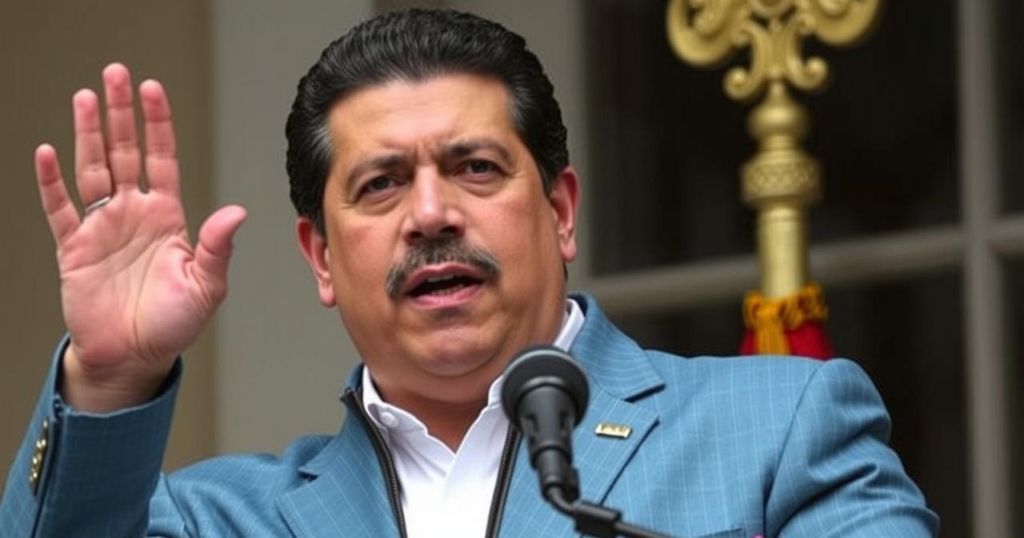Maduro Sworn In Amid Controversy Over Election Legitimacy and Protests

Nicolás Maduro was sworn in for a third term as Venezuela’s president amid protests and credible claims that his opponent, Edmundo González, won the election. The inauguration was heavily guarded and marked by accusations against the opposition. The election results have sparked international condemnation and new sanctions, while opposition leaders continue to call for democratic restoration.
Venezuelan President Nicolás Maduro was sworn in for a third term on Friday, extending his rule until 2031 amidst widespread international criticism and domestic protests. The inauguration took place in Caracas, under tight security measures, where pro-Maduro supporters gathered in large numbers. In his inaugural address, Maduro accused opposition members of attempting to disrupt the ceremony and claimed that the success of the event was a victory for the Venezuelan people. The opposition, meanwhile, presented evidence suggesting that Edmundo González won a significant majority in the disputed elections held on July 28.
The legitimacy of the election and the subsequent results were questioned by both domestic and international observers, including the Carter Center, which endorsed the tallies published by the opposition. Maduro’s administration faced increased sanctions from the European Union and the United States in the wake of claims of electoral fraud and governmental repression. Protests against Maduro’s regime saw hundreds of demonstrators arrested, while opposition leader María Corina Machado was briefly detained amid claims her safety was compromised.
As Maduro commenced his new term, he faced ongoing dissent and allegations that his government is suppressing opposition and limiting democratic freedoms. The international community expressed alarm, and Maduro’s critics maintained that the true victor of the election should be installed. The situation in Venezuela remains volatile, with human rights activists and diplomats decrying the repression of dissent and calling for the restoration of democracy.
The political landscape in Venezuela has been marred by allegations of electoral fraud and governmental repression in recent years. Nicolás Maduro, who has been in power since 2013, has faced significant opposition from both domestic rivals and the international community. His most recent election win was marred by claims of vote tampering and a lack of transparency, which led to protests and calls for his resignation. The opposition, led by figures like Edmundo González, has continually sought to challenge Maduro’s regime, which is perceived as increasingly authoritarian. The response from the Maduro administration has included crackdowns on dissent and the imposition of sanctions on opposition leaders.
In conclusion, Nicolás Maduro’s inauguration for a third term embodies the contentious political climate in Venezuela, where claims of election fraud and repression reign. Despite assertions of legitimacy from Maduro’s government, substantial evidence from opposition groups supports claims of electoral manipulation. The international community’s response reflects widespread concern for democracy in Venezuela, underscoring the divided reality in a nation grappling with political strife.
Original Source: gvwire.com








